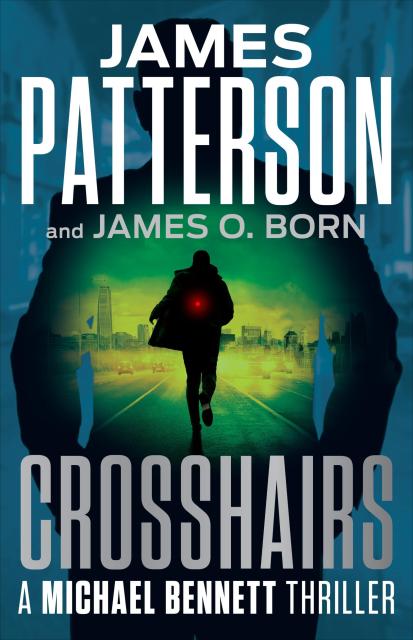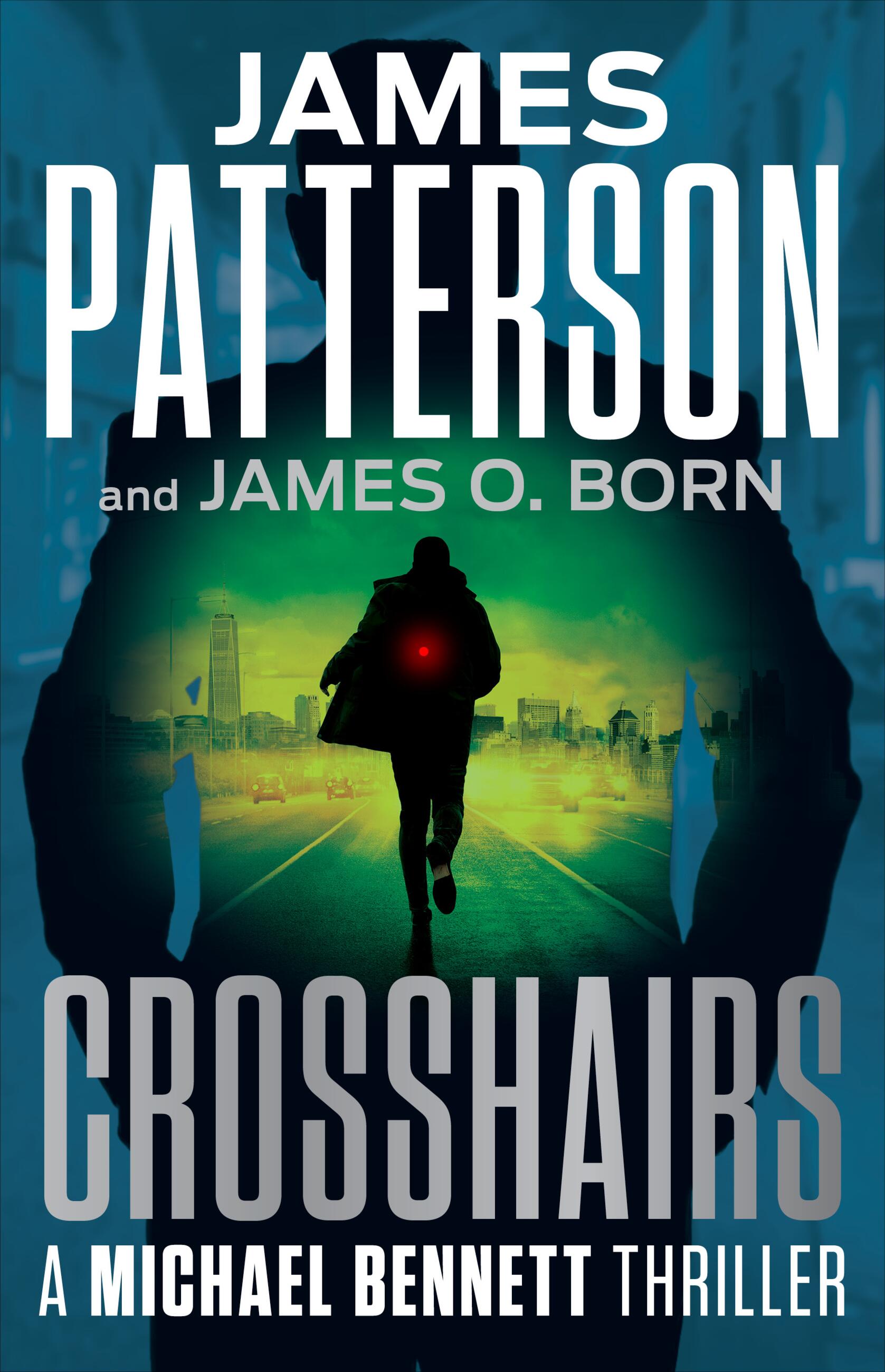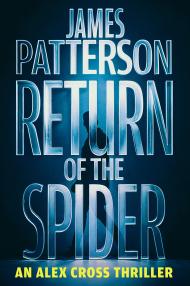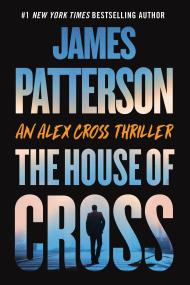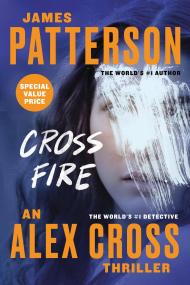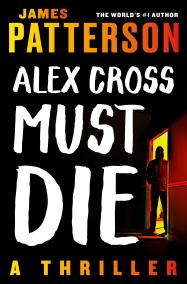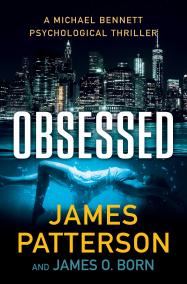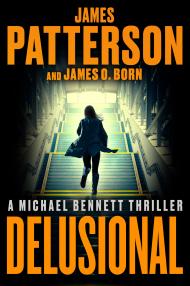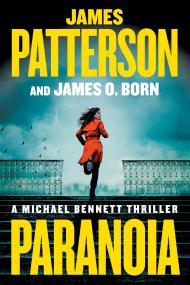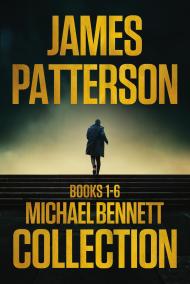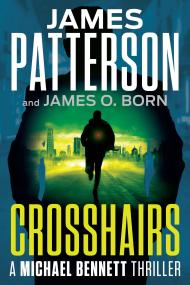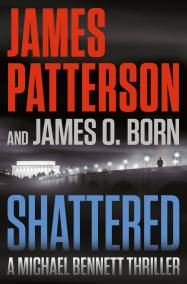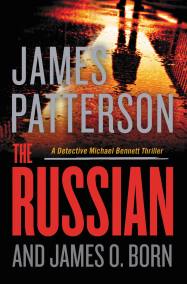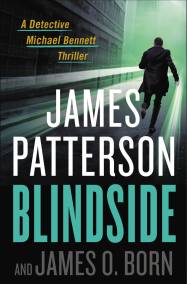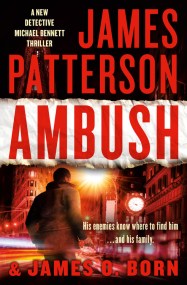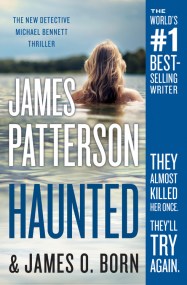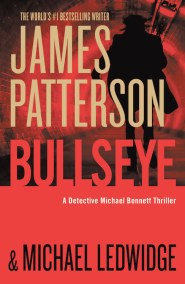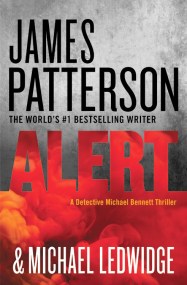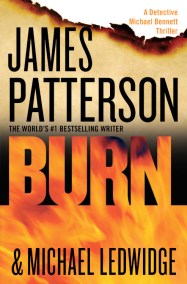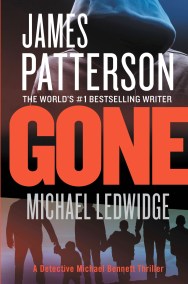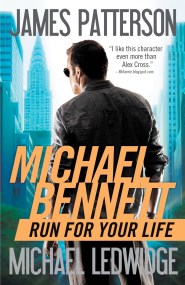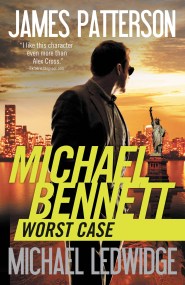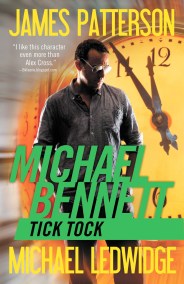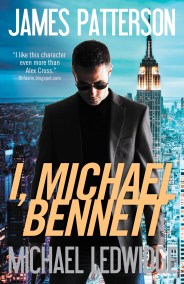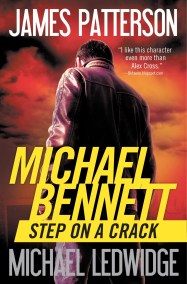By clicking “Accept,” you agree to the use of cookies and similar technologies on your device as set forth in our Cookie Policy and our Privacy Policy. Please note that certain cookies are essential for this website to function properly and do not require user consent to be deployed.
Crosshairs
A Michael Bennett Thriller
Contributors
By James O. Born
Formats and Prices
- On Sale
- Feb 12, 2024
- Page Count
- 400 pages
- Publisher
- Little, Brown and Company
- ISBN-13
- 9780316403382
Price
$30.00Price
$39.00 CADFormat
Format:
This item is a preorder. Your payment method will be charged immediately, and the product is expected to ship on or around February 12, 2024. This date is subject to change due to shipping delays beyond our control.
Buy from Other Retailers:
Enter into a deadly race against time with this psychological thriller as New York City detective Michael Bennett faces his most terrifying killer ever. It could be anyone. They could be anywhere.
A killer uses fearsome precision to take out impossible targets.
Detective Michael Bennett teams with a shooting expert—a former Army Ranger and sniper with NYPD’s Emergency Services Unit. But Officer Rob Trilling seems more comfortable with rifles than he is with people.
When his new partner begins to log unexplained absences from duty, only Bennett can prove whether the decorated officer is a lonely hunter or a hardened assassin.
“Turn. Up. The. Heat” —The New York Times
Series:
Families That Read Together … Read James Patterson!
Newsletter Signup
By clicking ‘Sign Up,’ I acknowledge that I have read and agree to Hachette Book Group’s Privacy Policy and Terms of Use
What's Inside
Read Chapters 1–5
•••
CHAPTER 1
ADAM GLOSSNER HAD to work hard to conceal his smile, sitting on the edge of his three‑year‑old son’s tiny bed. The little boy giggled as he squeezed the doll again. A shaky, recorded voice said, “Oh, geez. C’mon,Rick.”
Brooke, Glossner’s six‑year‑old daughter, snickered from the other bed.
Glossner said, “Are you sure you’ve never watched Rick and Morty?”
The little boy kept smiling and shook his head. “How did Grandpa know you’d like this Morty doll?”
Jeremy shrugged his little shoulders and kept the huge grin on his face. From the other bed, Brooke said,“Grandpa is smart. He said that’s why me and Jeremy are smart. It skips a generation.”
Glossner couldn’t keep from laughing out loud at that. His father often threatened to buy the kids a drum set if hedidn’t get to see them enough. All Glossner could do now was hug his son and do the little ritual where he tucked the blankets tightly around him. Jeremy was an amazingly still sleeper. Glossner would often find him in the same position in the morning. The boy looked like a tiny mummy.
He stepped over to his daughter’s bed and leaned down to give her a kiss.
Brooke said, “Daddy, can we go to the LEGO store soon?” “Sure. What’s my engineer need this time?”
“They have a new Star Wars collection. I just need one more TIE fighter.”
“Wow. When did you guys go full science fiction on me?”
Brooke smiled and said, “We’re not from the olden days. We grew up this way.”
Glossner snorted. “Six whole years of growing up. Nothing like the dark ages I had to live through.” He kissedhis daughter on the forehead. “Once upon a time, I had to watch the commercials during Giants games. No fast‑forwarding and no pausing either.”
“Really? All the commercials?”
“Yep.”
Glossner slipped out of the bedroom and down the hallway. His wife, Victoria, stepped out of their bedroomsuite. She still could walk a runway as a model but looked like she was going out for a jog, in shorts and a T‑shirt. She liked to sleep in the same clothes she intended to work out in the next morning.
“I love how Brooke lets Jeremy sleep in her room,” Glossner said. “It’ll be helpful when more siblings arrive.”
His wife said, “You better not expect too many more kids. I’ll be too old before you have the volleyball team you want.”
He chuckled as he leaned down and kissed her on the cheek. “We’ve got plenty of time. Want to come out on thebalcony with me?”
Victoria shook her head. “I have to give my sister a call, then I’m down for the count.” As she turned to walk pasthim, she gave him a swat on the butt. “Not bad for a guy who doesn’t have time to work out.”
A couple of minutes later, Adam Glossner stood on his third‑ floor balcony, gazing out at the park in front of hisapartment and the Hudson River beyond it. The air was cool but not uncomfort‑ able. No snow so far this year, but that was always iffy before Thanksgiving. The wind was from the east, so he didn’t catch that salty smell that came off the river. He held a snifter of brandy in his left hand. He’d given up smoking cigars in the evening when Brooke told him they smelled gross. He had to admit he felt better for it.
He could see the three closest buildings around a bend in Riverside Drive. Something caught his attention. Amovement on one of the lower balconies. Then a boat on the river distracted him. He took a sip of the Rémy Martin Cognac and gazed back out at the river.
His brain didn’t have time to process the sound of the bullet before it punched into the side of his head and senthim tumbling through the open French doors onto the Italian tile they’d just paid a fortune to have laid in their living room.
•••
CHAPTER 2
I LAY IN bed, appreciating the dark bedroom. The apartment was quiet. With ten kids, that was rare. My wife, MaryCatherine, had been pushing both of us toward a healthier lifestyle. That included a couple of minutes of focused breathingand meditation every morning. This was my time to breathe and meditate.
I could hear Mary Catherine’s light snore. It was cute. Not that I could ever tell her that. She had the belief that she never snored.As Trent once said to her, “You claim you don’t burp. But I’ve seen you burp a couple of times. According to my debate class, thatwould negate your entire premise. Besides, everyone burps.” That had earned my youngest son a stern look and a smallportion of roast pork with rice and beans. It also put Trent on notice that Mary Catherine really didn’t care for him pointing out herpersonal habits.
I was mature and experienced enough to know never to make a similar comment. I didn’t care if Mary Catherine burped after apepperoni pizza; I’d act like I didn’t hear or smell anything at all. Maybe that was the secret to our very happy marriage. That or the fact that we’d been married less than two months.
Then my cell phone rang. As I picked up the phone, I saw that it was my boss, Harry Grissom, calling me at 6:01 a.m. Therewas only one thing he’d be calling about this early.
“Hey, Harry,” I kept my voice low even though I knew the ring itself would’ve woken Mary Catherine.
“Sorry for the early call, Mike.” Somehow his voice didn’t sound quite as gravelly as it did during the day.
“What’s up?”
Harry said, “This may shock you, but I’m calling because of a homicide.”
“No, really? I thought you might want me to meet for you breakfast or maybe go for a walk.”
I sat up in bed, then reached into my nightstand drawer and pulled out the little notebook I always keep there. “Where am I heading before breakfast?”
Harry gave me the address. I said, “Wait. Where?”
“I know. It’s close to your apartment,” Harry said. “You could probably walk there. We got a problem, though. The body was found a few hours ago, but someone screwed up, patrol got overwhelmed, and no one called us immediately. There’s already media on the scene.”
“That does make things trickier. I can’t believe too many reporters are at the scene of a homicide. Even if it is probably some rich guy based on the address.” I stopped and thought about it for a moment. I was careful when I said, “Harry, why isthere already media there at this time in the morning?”
Harry said in a flat tone, “It’s another victim of the sniper.”
•••
CHAPTER 3
THE ONLY KID I encountered during my attempt to escape the apartment quietly was Jane, who often got up early to study. Even by her standards, though, this was a little excessive. I gave her a kiss on the top of her head and headed for the door. Acop’s kids know not to ask questions when they see their mom or dad leave early or in a hurry.
Just as I was passing through the door, Jane called out, “Be careful, Dad.”
It put a smile on my face.
It took me longer to walk across the street and up to the parking garage where I park my NYPD Chevy Impala than it did for me to drive the few blocks to the crime scene. But the entire trip gave me a little time to think. The media had been playing upthe story of two people shot from long range almost a month apart. I think it was the Brooklyn Democrat that came up with acatchy name: the Longshot Killer. It was easier to appreciate a good nickname for a killer before you met the victim’s family. For now, I respected someone’s poetic license.
This was the only victim in Manhattan. The first, Marie Ballard, had been a single grandmother in Queens. The next one was Thomas Bannon, a fireman who lived on Staten Island. I was already racking my brain, trying to find a pattern to thekillings.
Every homicide detective tends to note homicides with similar details. You never know when it might reveal a serial killer. I wasn’t even sure if I was up for another major investigation after my past few months. But I learned a long time ago thatneither the NYPD nor the public cares one bit how tired I am or what kind of mood I’m in.
I pulled up next to a parked patrol car. I recognized the patrol officer but couldn’t think of his name as he waved to me. Aftera dozen steps, I stopped for a moment. I sucked in a deep breath like a free diver attempting a hundred‑foot dive. Then Ilistened to the sounds of the city just waking up. I never know how frantic my life might become as soon as I dive into ahomicide investigation. I like to savor my last moments of relative calm.
I noticed half a dozen reporters and three cameramen hovering near the entrance to the building. A young female patrol officer stood by the door, blocking the media people.
One of the reporters stepped right up to the officer, trying to intimidate her. He said in a loud voice, “I live in the building. I demand you let me in.”
The young cop let a smile slide across her face. She said, “I’m sure you do. In your mind. But I expect it’s more likely you livein a studio somewhere in Queens. I’m just basing that on what reporters at your shitty station are paid.”
I let out a laugh.
Before I got any closer, I heard someone call my name. It was Lois Frang from the Brooklyn Democrat. She had a decent reputation among the cops for honest reporting and being a straight shooter. I knew she’d worked at one of the bignewspapers years ago but left under a cloud of some kind. She seemed to get a charge out of racing around the city, writing aboutsome of the more lurid crimes. She also seemed to love working for the small Brooklyn newspaper. Even if the little paperhad more ads than articles.
Lois said, “Must be big if they brought you in on this, Detective Bennett.”
“C’mon, Lois, no one’s bringing in anyone. It’s a homicide in Upper Manhattan. If you’ll recall, my assignment is to theManhattan North Homicide unit. I’d get called no matter the circumstances.”
“Can you give me any insights?” Lois had pulled a small pad from her purse, which looked more like a duffel bag.
“The best insight I can give you is that cannabis stocks might be a good investment.”
“Very funny. Anything about this homicide?”
“Technically, we don’t know it’s a homicide yet. Until I get up there and look around it’s still a death investigation.”
“Cut the shit, Bennett. We all know he was shot at long range. Why do you think everyone’s out here at this ungodly hour? We want to pick up details about the latest victim of the Longshot Killer.”
“Did you come up with that name, Lois?” She beamed for a moment. “Why, yes, I did.”
“Well played. Descriptive without being too campy. You could give lessons to the Daily News or the Post about variety and imagination when naming a killer.”
“Thanks, Bennett. It would be an even better story if you could give me a few details.”
I shrugged. “Don’t know what to tell you, Lois.” “We heard the victim was well‑known.”
I shrugged again. I honestly didn’t know anything yet except the victim’s name: Adam Glossner.
•••
CHAPTER 4
THE APARTMENT WAS on the third floor, so I took the stairs. When I stepped through the stairwell door on the third floor, the scene was exactly as I had expected. Cops, medical examiner workers, and tenants all milled around the opendoor to an apartment. A few doors down, sitting in a chair that looked like it came from the apartment, was a distraughtdoorman. Several crime‑scene techs were getting their equipment ready, and a uniformed patrol sergeant kept nonessentialworkers and gawkers away from the door.
The sergeant looked up and said, “About time someone from Homicide showed up.”
I smiled at Sergeant Leslie Asher and said, “We show up as soon as we’re called.”
“Touché.” She smiled and said, “I already sent the imbecile who didn’t call you home. What we got isn’t pretty.”
“Talk to me, Leslie.”
“The victim is forty‑one‑year‑old Adam Glossner. Some kind of hedge‑fund manager. His wife found the body about two hours ago, when she realized he wasn’t in bed. She said he’d been headed out to the balcony when she went to bed around nine. It’s asingle bullet hole visible on the right side of his head. Looks like he sort of bounced off the French door frame and fell on thefloor. The two kids are with the wife in one of the neighbors’ apartments. There, you’re up to date.”
I stepped into the apartment and let the videographer and photographer do their job before the crime‑scene techs moved in. The body was still on the floor where it had been found. Someone from the medical examiner’s office was waiting outsideto take Mr. Glossner.
I paused and said a quick prayer for Adam Glossner’s soul. My grandfather always tells me how important it is to take every life seriously. By extension we must take every death seriously. This isn’t a ritual I treat lightly. But I wish I didn’t have to do it sooften. I felt a pang of sorrow for the victim’s children. I’ve seen too many kids grow up without parents due to homicides. A murder can have ripples in a family for generations.
For a long moment, I stared down at the body and its blood that had seeped onto the gorgeous tile floor. The dark blood clashed with the white tile. It was my deepest hope that Glossner’s wife had been able to get the kids out of the apartmentwithout them seeing the remains of their father.
I could see exactly what Sergeant Asher had been talking about. It was clear Glossner had been standing on the balcony when the bullet struck him. I could picture him spiraling through the door and onto the pristine tile.
I looked out the open French doors. The apartment was on a bend in the road that allowed a view of the balcony from at least five different buildings. I tried to get an idea where the shot had come from. I was at a loss. My boss, Harry, had texted methat he already had cops canvassing the area. Maybe someone heard or saw something.
I walked through the apartment by myself. I could see the family had built a life here. Young kids, good job, the Americandream. I hoped the victim had had enough sense to appreciate his family and situation. I’d seen many a Wall Street financialmanager work so hard they forgot they had a life outside of lower Manhattan.
The other thing I realized as I stared at the wound on the right side of Adam Glossner’s head: I was not used to homicideslike this. I generally dealt with killers who get up close and personal. Even with firearms. Most people feel more confidentthe closer they get.
Clearly that wasn’t true of this killer.
•••
CHAPTER 5
I’D GOTTEN A decent sense of the crime scene. Now it was time to toughen up and do my least favorite assignment in a case like this: interview the grieving. I nodded to the crime‑scene techs filing into the victim’s apartment as I walked out andthen down the hallway to the neighbor’s place.
The door was open. I saw a young female patrol officer sitting on the couch next to Victoria Glossner. The officer had a little boy in her lap as the mom rocked back and forth with a girl I judged to be about six years old.
Mrs. Glossner was a very attractive, fit woman of about thirtyfive, probably six or eight years younger than her husband. I don’t even notice teary, bloodshot eyes anymore on this job. But I saw how she clutched her daughter and how both the kids looked completely confused. It hit me like a sledgehammer. I remembered talking to my kids when their mother was dyingof cancer.
We’d had months to prepare for the eventual shock. What do you do when your whole world changes in just a moment?
The patrol officer looked up and saw me. I nodded. Then I tilted my head to the left and the sharp young officer stood up with the little boy still in her arms. She said to the little girl, “Let’s see if we can find something for you guys to drink.”
Mrs. Glossner released her daughter to walk with the officer into another room. I sat across from her in an antique, uncomfortable chair. I introduced myself and told her how sorry I was. It wasn’t an act. I am always sorry in a situation likethis.
She said she was okay to talk. “I watch so many of the police reality shows that I know how important the first forty‑eight hours of a homicide investigation can be. I don’t know what I can tell you. But I’ll answer any questions you have.”
I handed her a tissue from a box on the table next to the couch. She nodded her thanks and dabbed at her eyes. She explained to me that she had gone into the bedroom around nine and had talked to her sister on the phone for about forty minutes.Afterward, she’d quickly drifted off to sleep. Her husband had not come to bed by that time.
I asked, “Is it usual for him not to come to bed at the same time as you?”
She nodded. “He liked to clear his head. He loved to look at the river from our balcony. He did it almost every night. Heusually came to bed somewhere between ten and eleven.” She sniffled and looked like she was about to sob again. Then shegained control of herself.
Victoria Glossner said, “It’s just not fair. We had so many plans. We’d been through so much. We were talking about having another baby. How could this have happened?”
I asked all the usual questions. The ones about her husband’s friends and associates. If she knew of anyone who might want to harm him. I held off on the questions about potential drug use and gambling. It’s surprising how often one of those twovices is behind a homicide in an area like this.
She answered no to all of those questions.
I said, “You said you’d been through so much; was it anything that would’ve made someone angry enough to do this?”
She quickly shook her head and said, “Just some rough spots in his business. Nothing we were too worried about now. That’s what I’m saying. Our life was really good. Or at least about to become really good.” She started to cry. Then it turned into a flood of tears.
I waited silently, wanting to expand on what sort of business problems Adam Glossner had been experiencing. Before I could speak again, a tall, well‑dressed woman came to the door.
When a patrol officer tried to stop her, she snapped, “I’m going in to get my daughter and I don’t care who doesn’t like it.”
The officer looked at me, and I just nodded. As the new woman marched toward the couch, Victoria Glossner looked up andthen moaned, “Oh, Mom. Thank God.” She jumped up and hugged her mother.
Her mother said, “Get the kids, and let’s go to my apartment.
We need to get you and them away from here.”
Victoria said, “I was just answering a few questions for this detective.”
Her mother didn’t even bother to look in my direction. She said, “That can wait until later.” Then she took her daughter by the hand and started calling for the kids.
They were all out of the apartment in less than a minute.
